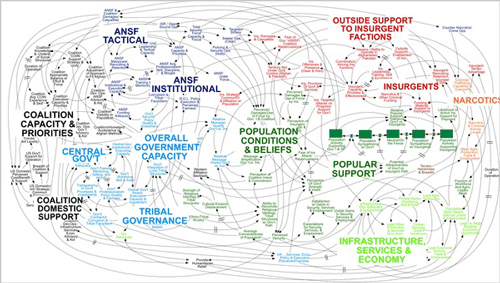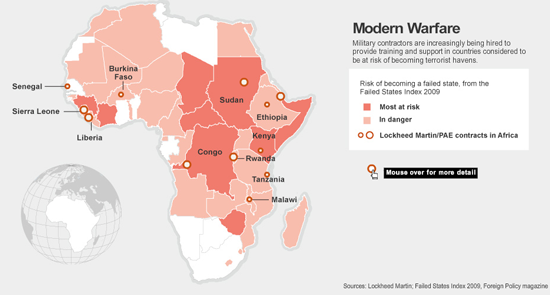UPDATE 2, 4/30 4:58pm see end of post for Response to "Glen Beck" comment et al.
UPDATE 4/30 4:09PM: see end of post for a GREAT comment on this post from a very knowledgeable person
Most kinds of racism are now thankfully no longer tolerated. However, this doesn’t change the part of human nature that enjoys racism – it allows you to blame all your problems on some despised ethnic minority. So racism may have just gone underground to pop up in unexpected places. The old templates are still around -- an ethnic minority that has sinister intentions to harm everyone else, complete with conspiracy theories of hidden plots to consolidate their own secret control of society.
One example is virulent prejudice against a group I will call “the X’s”. There is a website with a game called “Shoot the X’s”. The X’s are trying to “suck the last bits of meat from the carcass” of society, but they are “running out of things to steal.” The X’s rig everything in their own interest: they “simply cannot lose.” Their “barefaced greed” simply “beggars belief.” They commit “blasphemy” that is “worthy of the 7th circle of hell.”
“Power is concentrated in the hands of a few key” X’s, the group of which “has also proved itself brilliantly capable of enlisting the power of the state to help along the process of concentrating economic might.” At a meeting “never announced publicly,” which “included virtually everyone who was anyone” among the X’s, they achieved a further “monstrous consolidation of financial and political power.” The “burglar” X’s ethnic group “now rules the national economy.”
It is now time to strike back: “put the greedy X’s in stocks.” "If you pressed a rifle into the hand of the man in the street,” he would surely choose to shoot the X’s.
Who are the X’s? If the X’s were Jews, this would all sound like quotes from the Protocols of the Elders of Zion. In fact these quotes seem uncannily similar in general to the virulent anti-Semitism that flourished in Europe before World War II (and still flourishes in some places around the world).
Some of you have probably already guessed the identity of the X’s. The X’s in the above quotes are the "race" of financiers/bankers. You can feel prejudice against an occupationally-defined race just as much as against an ethnically-defined race (and the two often overlap because some ethnic minorities are overrepresented in some occupations). Let’s call this form of racism “bankism.” As the previous post pointed out, bankism has a long and not very attractive history.
(The original sources for the above quotes are articles in Rolling Stone, Mother Jones, the Telegraph (UK), and the Times (UK) -- the lastquoting others, not the author speaking . The web site is "Shoot the Banker").
No, I am not predicting genocide against bankers any time soon (although a joke wishing for such genocide would probably get an appreciative laugh). Bankism is destructive for many other reasons. Like other forms of racism, bankism feeds hatred towards the whole group because of the misdeeds of a few of its members. We are seeing the equivalent of Willie Horton ads to feed bankism. Most financiers are honest individuals performing socially useful services; promoting hatred of them is not a good thing.
Politically, bankism creates a distorted narrative where an economic disaster is blamed on the malevolence of a few specific individuals, rather than defects in the systemic incentives in which myriads of individuals interact. This fuels political responses that are irrationally punitive, rather than a rational attempt to correct perverse incentives. So crisis prevention will be unsuccessful, the next crisis will feed bankism further, and where will it all end?
Better to face up to the latest form of racism now, and stigmatize it just as much as the old forms of racism.
UPDATE 4/30 4:09pm
Great comment from a very knowledgeable finance professional:
The “shoot the bankers” strategy is a diversionary tactic that avoids dealing with who allowed this to happen … the FED and SEC, who are being given MORE power and MORE discretion and LESS oversight, and Congress … who were bought off by bankers and the GSEs. If I were a banker, I would say fine … have a good shout, satisfy the public, but don’t really change the rules that allow me to make lots of money while gambling with other people’s money and while enjoying a government guarantee.
UPDATE 2 4/30, 4:59pm. Wow, today I seemed to have a Gordon Brown moment in this post. Kind of bewildered and surprised to have set off so many land mines and wind up next to Glenn Beck.
Me the cloistered intellectual reading my history of economic and political thought books can unintentionally mumble some code words that cause immediate classification into some extreme ideological box that I didn't even know existed.
I had actually never watched Glenn Beck before being called a Glenn Beck. I went and checked out a few video clips and saw that he apparently likes to call lots of people racists and Nazis and so on. Sorry, didn't know that.
The point of this post and in the previous post was the historical continuity over many centuries in demonizing the group of financiers as malevolent individuals, and the parallels and sometime overlap with racist speech.
Apparently this came across as really insensitive and unfair to two groups: (1) the victims of racism, and (2) people who have a genuine beef with a screwed up financial system (which is basically all of us). Sorry for being insensitive -- I am not implying bankers are the equivalent of lynching victims or Holocaust victims, and I am not implying that all critics of finance are the equivalent of racists.
On (2), I tried already to say, but let me try again to say, that antipathy to finance is a mixture of irrational and rational anger, and I am just trying to point out the historically venerable and important irrational component.
Another part of the problem is my weakness for provocative titles and Tweets, and then people react only to those and not to the nuances in the actual post.
So, sorry, Aid Watchers, I didn't get it quite right today, and I appreciate the feedback. Be sure to check out the Seinfeld "anti-dentite" clip in one of the comments.
 The Financial Times reports on how the Drummers of Burundi performing at a music performance in Abu Dhabi avoided breaking the law against exposing (even male) nipples with some strategic tape.
The Financial Times reports on how the Drummers of Burundi performing at a music performance in Abu Dhabi avoided breaking the law against exposing (even male) nipples with some strategic tape. From Aid to Equality
From Aid to Equality









